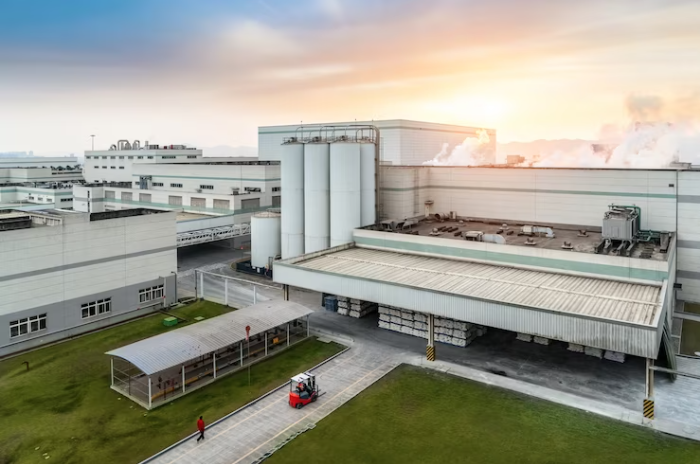In an era where environmental concerns are paramount, industries are recognizing the importance of adapting their properties for sustainable practices. The shift toward sustainable industrial operations not only aligns with ecological responsibility but also brings substantial economic and reputational advantages. In this comprehensive guide, we will delve into the strategies, benefits, and challenges of adapting industrial properties for sustainable practices.
Adapting Industrial Properties for Sustainable Practices
Sustainability in industrial operations isn’t just a trend—it’s a necessity. Companies across the globe are adopting innovative strategies to transform their properties into environmentally friendly hubs while maintaining productivity. The process involves incorporating renewable energy sources, optimizing resource utilization, and implementing green technologies to minimize the carbon footprint and ecological impact of industrial activities.
The Power of Sustainable Transformation
Sustainable practices offer more than just a positive impact on the environment; they can significantly enhance a company’s reputation, operational efficiency, and bottom line. By embracing eco-friendly initiatives, industries can reduce energy costs, decrease waste production, and streamline resource consumption. This transformation not only attracts environmentally conscious consumers but also motivates stakeholders and investors to support businesses that prioritize sustainability.
Key Strategies for Adapting Industrial Properties
Embracing Renewable Energy Sources
One of the core strategies in sustainable property adaptation is the integration of renewable energy sources such as solar, wind, and hydropower. These sources provide clean, continuous energy, reducing reliance on fossil fuels and subsequently lowering greenhouse gas emissions. By harnessing the power of nature, industries can generate their electricity, making a substantial contribution to the reduction of their carbon footprint.
Implementing Energy-Efficient Technologies
Incorporating energy-efficient technologies like LED lighting, advanced HVAC systems, and smart energy management systems can lead to significant reductions in energy consumption. These technologies not only decrease operational costs but also create a more comfortable and productive work environment for employees.
Optimizing Water Usage
Industries are notorious for their substantial water usage. By adopting water-saving technologies and practices, such as rainwater harvesting and wastewater recycling, companies can drastically reduce water wastage and contribute to water conservation efforts.
Waste Management and Recycling
Efficient waste management and recycling programs are essential components of sustainable practices. Industries can adopt a circular approach by repurposing waste materials, minimizing landfill contributions, and adhering to responsible disposal methods.
Green Infrastructure and Landscaping
Creating green spaces and sustainable landscapes within industrial properties can enhance air quality, provide natural habitats for wildlife, and improve the overall aesthetics of the facility. Green infrastructure can also mitigate the urban heat island effect, promoting a healthier environment.
Employee Engagement and Education
Engaging employees in sustainability initiatives can foster a culture of environmental responsibility within the workplace. Training programs and awareness campaigns can empower employees to make conscious choices that contribute to the overall sustainability goals of the company.
Benefits of Adapting Industrial Properties for Sustainable Practices
1. Cost Savings and Efficiency Gains
Implementing sustainable practices often leads to reduced energy and resource consumption, resulting in lower operational costs and enhanced overall efficiency.
2. Enhanced Reputation and Marketability
Companies that prioritize sustainability attract eco-conscious consumers, bolstering their brand reputation and expanding their market share.
3. Regulatory Compliance
Many regions have stringent environmental regulations. Adapting industrial properties for sustainable practices ensures compliance, avoiding penalties and legal complications.
4. Innovation and Competitive Advantage
Embracing sustainability encourages innovation in processes and technologies, giving companies a competitive edge in the market.
5. Positive Work Environment
A green workplace fosters a healthier and more pleasant atmosphere for employees, contributing to higher job satisfaction and productivity.
6. Long-Term Viability
Sustainable practices ensure the long-term viability of industrial operations by mitigating environmental risks and reducing reliance on finite resources.
Challenges and Overcoming Barriers
While the benefits of adapting industrial properties for sustainable practices are evident, several challenges exist. These include initial implementation costs, resistance to change, and the need for specialized expertise. However, companies can overcome these barriers through strategic planning, stakeholder engagement, and by viewing sustainability as an investment in the future.
FAQs
Q: How can industries benefit from sustainable property adaptation?
Industries can experience cost savings, improved reputation, regulatory compliance, innovation, a positive work environment, and long-term viability through sustainable practices.
Q: What is the significance of renewable energy sources in industrial sustainability?
Renewable energy sources reduce reliance on fossil fuels, lower carbon emissions, and contribute to a greener energy future.
Q: How does employee engagement influence sustainable transformation?
Employee engagement promotes a culture of environmental responsibility, encouraging conscious choices that align with sustainability goals.
Q: Are there financial incentives for sustainable industrial practices?
Yes, many regions offer financial incentives, tax breaks, and grants to encourage industries to adopt sustainable practices.
Q: What role does waste management play in industrial sustainability?
Efficient waste management minimizes landfill contributions, reduces pollution, and maximizes the reuse of materials.
Q: Can small industries afford the transition to sustainable practices?
Yes, small industries can start with gradual changes, such as energy-efficient lighting and waste reduction, before scaling up their sustainability efforts.
Conclusion:
Adapting industrial properties for sustainable practices is a transformative journey that not only benefits the environment but also enhances a company’s reputation, efficiency, and overall success. By embracing renewable energy, efficient technologies, and responsible resource management, industries can contribute to a greener future while securing their position in a rapidly evolving market landscape.











Your comment is awaiting moderation.
Boncile Dabdoub